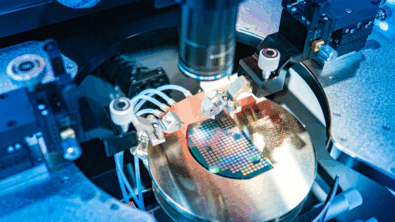Manufacturing traceability: How your MES adds product value

Manufacturing traceability is a crucial feature of your manufacturing execution system (MES). While manufacturing traceability software tracks the production status and disposition of works-in-progress (WIPs) throughout the manufacturing cycle, it also aggregates knowledge of each product, as built. In most contexts, as the saying goes, knowledge is power; but when it comes to MES for manufacturing traceability, knowledge is added value.
Consider how knowledge of the as-built finished product might be leveraged by OEMs and end users. Quality assessments of incoming components could be simplified. Additionally, once the finished product is operating in the field, product traceability supports service lifecycle management (SLM), the strategic approach to service planning and delivery that helps maximize product uptime – and service revenue. Further, in-depth knowledge of components may enable the end user to more accurately assess a product’s durability and extend its operational life.
Of course, the in-depth knowledge of a finished component’s makeup is only one of the outcomes of manufacturing traceability. Let’s take a look at what manufacturing traceability entails and how your MES supports this functionality before we circle back around to the benefits of manufacturing traceability.
What is manufacturing traceability?
The manufacture of any product or component starts with product design and manufacturing process planning, which represent what the manufacturer intends to make. Manufacturing traceability reveals what the manufacturer actually makes. Information gathered, organized and stored by comprehensive manufacturing traceability software starts at the very beginning of actual manufacturing efforts with information about incoming raw materials and components, and it continues through all production processes all the way to product shipping and delivery. Product information one should expect to be tracked by manufacturing traceability software includes:
- Raw material lot information, incoming inspection data, and key parameters such as storage and out time
- Data on incoming components and subassemblies
- Production line information and personnel employed in the manufacturing process
- Dates, times, and electronic signatures
- Test and inspection results throughout production
- Any alarms, rework, or other exceptions related to the product
Because a finished product’s traceability data includes information on incoming materials and components, even the most complex of products could include every activity and all processing data across the entire supply chain. Manufacturing traceability also entails lot traceability, such that one can identify and isolate finished products that include components from a particular lot and/or the final destination and ownership of finished goods from the same lot.
Traceability is not exclusively directed toward the finished product. It also provides WIP visibility in real time (or near-real time). This means that a manufacturer can monitor the disposition of each WIP, anywhere within the manufacturing workflow. Critical information may come to light because of manufacturing traceability and lead to actionable intelligence.
Traceability and your MES
MES with traceability generates a searchable information set pertaining to each product, including both as-planned information and as-built data. It does so by executing a set of functions pertaining to different points and activities along the production workflow. Before value-added activities begin, manufacturing traceability software first identifies the material lots and all related data points (incoming quality testing data, supplier name, and time in storage, to name a few). Likewise, the MES verifies information about each component that will become part of the finished good, as well as data generated at kitting stations and intermediate stockpiles.
As the product is created, the WIP tracking function of MES for traceability collects data on the production route taken by the particular product, date and time stamps for each production activity, machine settings, in-process test and inspection results and more. Also of critical importance, manufacturing traceability software tracks changes as they occur on the shop floor, whether they are made on the fly or are part of a bill of materials (BOM) revision. Any process events involving nonconformances or defects are captured as part of product traceability, as are any repair or rework activities undertaken.
Traceability ties each data point to the finished product, and this includes information that is not part and parcel of the product itself. For example, the MES captures machine events and sensor data as well as verification that a process is performed as planned; and this information is associated with each individual finished good to which it pertains.
Finally, manufacturing traceability software generates reports that archive the data in searchable form, so that audits, traceability queries and field queries can be immediately addressed. Manufacturing traceability data becomes part of an “as-built digital twin” for each finished product. Combined with digital twins of product and process, the as-built digital twin contributes to a truly comprehensive digital twin that aggregates both as-planned and as-built information.
Benefits of manufacturing traceability
Generating the as-built digital twin entails many of the benefits of manufacturing traceability already mentioned above. It also helps demonstrate compliance to regulatory bodies and makes required data readily accessible when auditors request it.
Another important benefit arises out of lot traceability. When a product recall occurs, the manufacturer wants to limit its scope as much as possible while ensuring that all affected products are included. If a defective component within a complex product is the cause of the recall, lot traceability informs the manufacturer of exactly which finished products contain the defective component.
Traceability also benefits the manufacturer by accelerating corrective and preventive actions during production and streamlining service and maintenance operations once the product is in the field. Reduced operational costs and reduced scrap are possible because of the real-time tracing that is provided. All these factors also lead to greater customer satisfaction because all stakeholders enjoy greater confidence in product quality.
Learn more about Siemens MES and how it supports manufacturing traceability.


